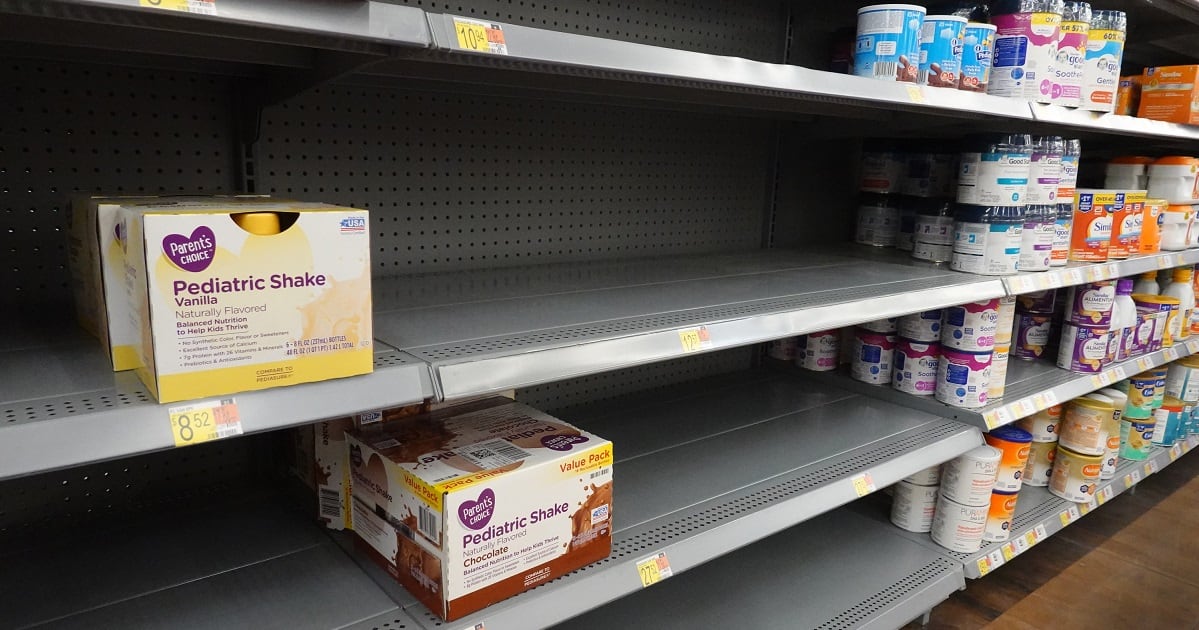Like their civilian counterparts, military stores are experiencing shortages of children’s over-the-counter medications for cold, cough, flu and fever as winter illnesses rage around the country.
The situation in stores varies. While Army and Air Force Exchange Service stores report that they’re well-stocked on these over-the counter meds, including online at ShopMyExchange.com, other exchange commands and commissaries report strains in their supply. Baby formula, which has been in short supply for months, is now in stock at AAFES.
“We are experiencing the same challenges as commercial retailers when it comes to the availability of children’s over-the-counter medicines for cold, flu and fever,” said Kevin Robinson, spokesman for the Defense Commissary Agency. “Right now, our supplies are strained and we expect to see the same for about the next 90 days.”
Commissary and exchange officials are encouraging their customers to buy only what they need.
Commissary store directors worldwide can use their discretion in placing shopping limits necessary to help keep the shelves stocked and lessen panic-buying, Robinson said. “The shopping limits policy is initiated to prevent hoarding. The shopping directive reinforces for store directors the authority they have to quickly tailor shopping limits, as required, to keep more products available for more customers.” Commissary officials don’t yet have specific numbers to determine which stores may have set purchasing limits on children’s medications.
As for the military exchanges, the situation varies. Army and Air Force Exchange Service stores and ShopMyExchange.com are well-stocked with these over-the-counter medications, said Julie Mitchell, a spokeswoman for AAFES. But at Marine Corps Exchanges, the stock is “very low,” according to Bryan Driver, spokesman for Business and Support Services at Headquarters Marine Corps.
Navy Exchange stores and their online MyNavyExchange.com store currently have two weeks of supply on hand and seven weeks of supply on order for children’s over-the counter cold, flu and fever medications, said Kristine Sturkie, a spokeswoman for the Navy Exchange Service Command.
While some commercial retailers have put limits on the amount of purchases of these children’s over-the-counter medications, there are currently no limits at any of the military exchanges, in stores or online. “However, if the supply becomes constrained, [AAFES] could consider limiting purchases,” Mitchell said. Navy Exchange officials are also monitoring the supply chain and will make any necessary changes as needed, Sturkie said.
“Our buyers are meeting weekly with key vendors to not only try and secure additional inventory, but also to identify any products that might be outside of our normal stock assortment,” Sturkie said. They’re also working with several companies to get their private label products for cold, flu and fever.
Commissary representatives also meet at least once a week with all four of their manufacturers to discuss product availability and balances on hand at all distribution centers worldwide, Robinson said. And, like the exchanges, they give priority to all overseas locations, to include Europe and Alaska.
Much like they’re doing with baby formula, Sturkie said, they’re prioritizing overseas locations, ensuring that military families serving around the world have access to these products. They’re using air freight to expedite shipments to overseas locations, where customers have fewer alternatives for cold, flu and fever products.
According to the American Academy of Pediatrics, parents should stay calm if they’re unable to find these medications; these over-the counter fever-reducing medicines are strictly for comfort. A fever is a sign that the body’s immune system is fighting off an infection, AAP notes. Some other ways they suggest to help a child when they have a fever include encouraging the child to drink plenty of fluids; giving small, frequent sips of liquid; giving them popsicles; and possibly giving the child a lukewarm bath, but not ice baths or cold-water baths.
RELATED

Baby formula shortages persist
There are still limited supplies of baby formula in many military stores.
“We are experiencing the same challenges as commercial retailers when it comes to the availability of infant formula/” Robinson said. “Right now, the number of available brands has been significantly reduced. Supplies for all our stores remain extremely fluid and evolve daily.”
Most commissaries have purchasing limits on baby formula. Since mid-May, commissaries have placed limitations on all classified specialty baby formula, like most commercial grocers and the exchanges. Those limits can vary by location based on local and state Women, Infant and Children (WIC) purchasing limits. Overseas stores are tied to purchasing limits through the WIC-Overseas program.
The purchasing limits are implemented to ensure that everyone has equal access to these items, Robinson said, and to prevent panic buying when a product is available.
As for the Navy exchanges, there’s a 12 week supply for baby formula worldwide, Sturkie said. Both Similac and Enfamil remain “on allocation” from the vendors, which means store officials can’t always get the amount of the formula they request for the shelves. Officials work with these manufacturers weekly to place new orders. NEXCOM also looks beyond its regular assortment to bring in other brands as a one-time buy, she said. Navy exchanges continue to limit formula purchases to five per customer, both in store and online.
At Marine Corps exchanges, the stock of baby formula is “very low,” Driver said, but there currently aren’t purchase limits.
There are no purchase limits on baby formula at AAFES or ShopMyExchange.com stores, either. And baby formula is in stock at these stores. “Issues with supply are not anticipated,” Mitchell said.
Authorized customers can shop at any exchange, regardless of their branch of service.
Karen has covered military families, quality of life and consumer issues for Military Times for more than 30 years, and is co-author of a chapter on media coverage of military families in the book "A Battle Plan for Supporting Military Families." She previously worked for newspapers in Guam, Norfolk, Jacksonville, Fla., and Athens, Ga.





